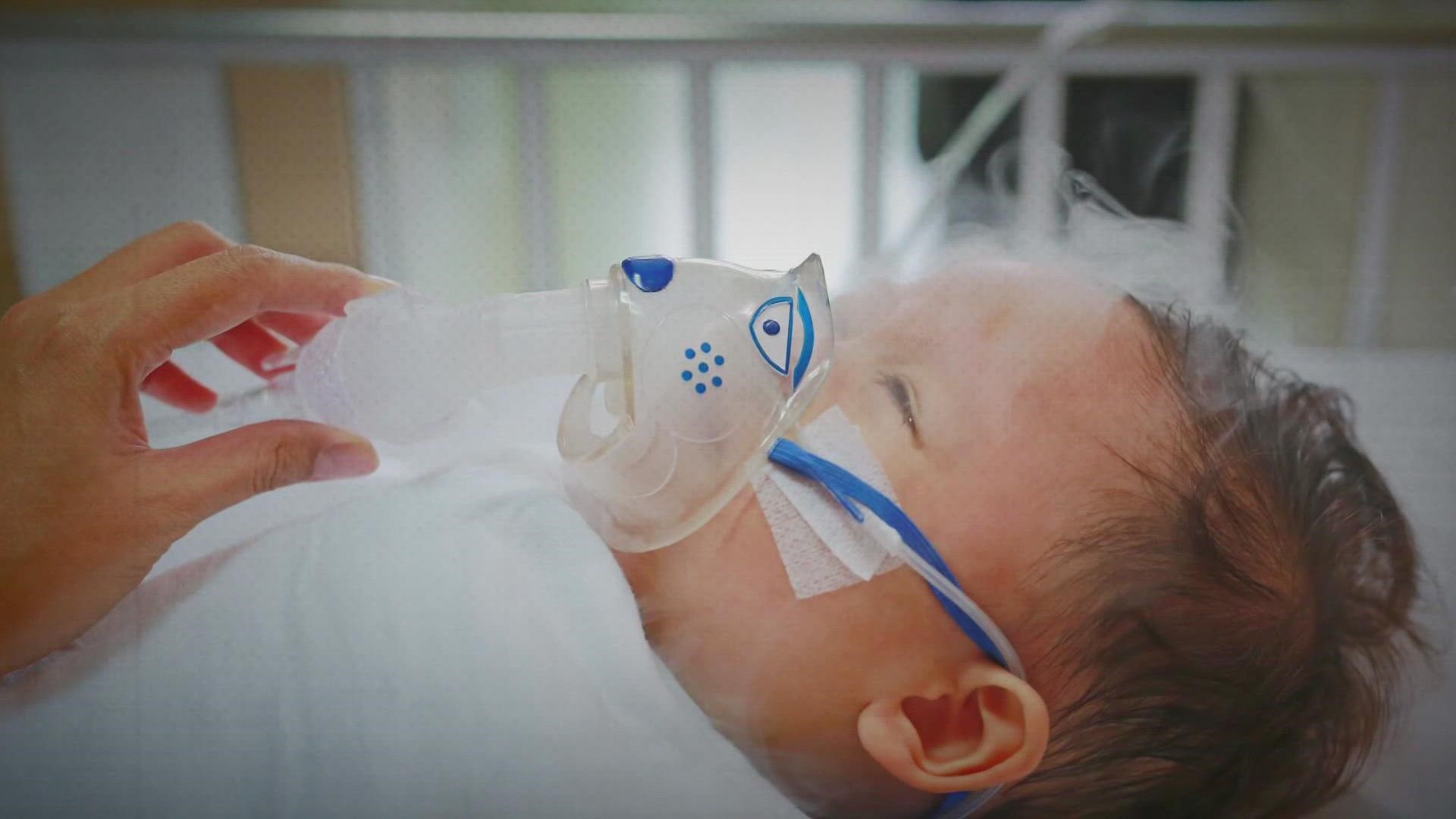KNOXVILLE, Tenn. — Doctors across the country said they are noticing an early rise in Respiratory Syncytial Virus (RSV) cases in children this fall.
The East Tennessee Children's Hospital said it is also noticing an increase in respiratory illnesses locally.
RSV cases typically see a seasonal rise in the winter, but since the pandemic, it's been more difficult to predict when cases set in. In 2021, RSV cases began rising in the summer.
The virus usually causes mild symptoms like a cold, but in some cases can worsen and cause severe illness in infants and young children as well as senior adults.
Symptoms include loss of appetite, fever, coughing and sneezing. More severe symptoms include having trouble breathing and dehydration, which may require hospitalization.
Dr. Beth Thielen, a physician-scientist with the University of Minnesota Medical School who specializes in pediatric and adult infectious disease, spoke with our Minneapolis sister station KARE11 to provide a picture of what's happening.
"It's important to make a distinction that RSV causes the most severe disease in young children, but it really does affect the whole population. Parents may be familiar with their child going to daycare, coming back with a runny nose and then they get a cold a few days later," Dr. Thielen said. "Often times that maybe be due to RSV, it's just that adults have seen the virus multiple times before and they have a better immune response that are able to keep it contained. We do know that RSV causes a substantial amount of severe disease that is underdiagnosed in older adults, and so we definitely see severe disease happening in the very young and the very old."
RSV is the number one cause of hospitalization for children under a year old. There isn't a vaccine against the virus, so doctors said parents should keep sick kids home, sanitize their toys and keep them hydrated and healthy.
Knowing when to call the pediatrician or go to the emergency department is key.
“If it turns into a hacking cough that won’t go away, if it turns into labored breathing, for example, they’re using their little chest, it's moving up and down because they can’t take a deep breath if they’re not able to keep down fluids and they’re becoming dehydrated and fatigued this is a time to talk to your pediatrician and head to the emergency department,” Dr. Juanita Mora with the American Lung Association said.

